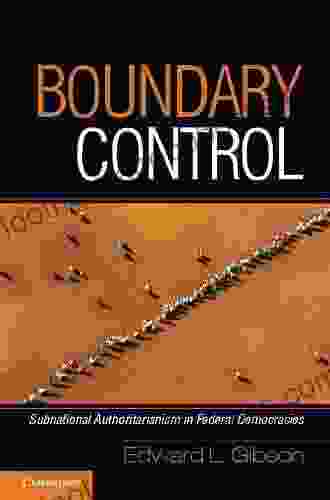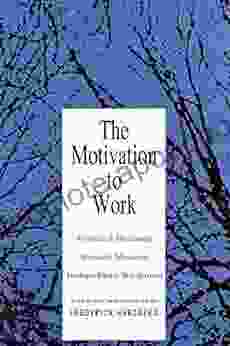Subnational Authoritarianism in Federal Democracies: Unveiling the Hidden Erosion of Democratic Values

In the contemporary landscape of federal democracies, a disturbing trend has emerged: the rise of subnational authoritarianism. This phenomenon, characterized by the erosion of democratic norms and institutions at the local or regional level, poses a significant threat to the integrity and stability of democratic governance.
Subnational authoritarianism manifests in various forms, including the suppression of political dissent, the undermining of independent media, and the manipulation of electoral processes. It often operates under the guise of populism or nationalism, exploiting popular grievances to justify authoritarian measures.
This article delves into the complexities of subnational authoritarianism, examining its causes, consequences, and potential remedies. Drawing upon the insights of leading scholars in the field, we shed light on this growing threat to democratic values and explore strategies for combating its corrosive effects.
4 out of 5
| Language | : | English |
| File size | : | 2173 KB |
| Text-to-Speech | : | Enabled |
| Screen Reader | : | Supported |
| Enhanced typesetting | : | Enabled |
| Word Wise | : | Enabled |
| Print length | : | 210 pages |
| X-Ray for textbooks | : | Enabled |
The rise of subnational authoritarianism is attributed to a combination of factors, including:
Economic Disparities and Social Fragmentation: Economic inequality and social divisions within federal democracies can create fertile ground for authoritarianism. Disenfranchised and marginalized communities may become disillusioned with democratic institutions, perceiving them as unresponsive to their needs.
Weakened Central Authority: In some cases, subnational authoritarianism flourishes when central governments are perceived as weak or ineffective. Local or regional leaders may exploit this weakness to consolidate power and implement authoritarian measures.
Erosion of Trust in Institutions: A decline in trust in traditional democratic institutions, such as political parties and the media, can create a vacuum that authoritarian leaders can fill. By presenting themselves as outsiders or saviors, these leaders can gain support from citizens who have lost faith in the established Free Download.
Technological Advancements: Social media and other digital platforms have facilitated the spread of authoritarian propaganda and the suppression of dissenting voices. Subnational authoritarian leaders can use these technologies to control the narrative and manipulate public opinion.
The consequences of subnational authoritarianism are far-reaching and detrimental to democratic societies:
Undermining of Democratic Norms: Subnational authoritarianism erodes fundamental democratic principles, such as freedom of speech, assembly, and the rule of law. It creates a climate of fear and intimidation, silencing dissent and suppressing political opposition.
Weakening of Federalism: Subnational authoritarianism undermines the delicate balance of power within federal democracies. When local or regional leaders become authoritarian, they can disrupt the cooperative relationship between different levels of government and weaken the federal system as a whole.
Erosion of Public Trust: Authoritarian practices at the subnational level damage public trust in democratic institutions. Citizens lose confidence in their ability to influence decision-making processes and hold their leaders accountable.
Potential for Violence and Conflict: In extreme cases, subnational authoritarianism can lead to violence and conflict. The suppression of dissent and the manipulation of elections can create a tinderbox that threatens the stability of the entire democratic system.
Addressing the challenge of subnational authoritarianism requires a multifaceted approach:
Strengthening Central Authority: Central governments must assert their authority and ensure that local and regional leaders adhere to democratic norms. This may involve implementing measures to prevent the abuse of power and promote transparency and accountability.
Rebuilding Trust in Institutions: Restoring public trust in democratic institutions is crucial. This can be achieved through reforms that enhance the responsiveness, transparency, and inclusivity of government.
Empowering Civil Society: Civil society organizations play a vital role in monitoring and countering authoritarian tendencies. Strengthening these organizations and providing them with the necessary resources is essential for safeguarding democratic values.
Countering Authoritarian Propaganda: Combating authoritarian propaganda requires a comprehensive approach that includes promoting media literacy, supporting independent journalism, and regulating the use of social media for political manipulation.
International Cooperation: International organizations and democratic countries must collaborate to address the transnational aspects of subnational authoritarianism. Sharing information, providing support for democratic forces, and imposing sanctions on authoritarian regimes can help to combat this threat.
Subnational authoritarianism represents a grave threat to democratic societies. Its insidious erosion of democratic norms and institutions undermines the foundations of our governance systems and jeopardizes the well-being of citizens.
Addressing this challenge requires a collective effort from governments, civil society, and the international community. By strengthening central authority, rebuilding trust in institutions, empowering civil society, countering authoritarian propaganda, and fostering international cooperation, we can safeguard democratic values and ensure that our societies remain bastions of freedom and justice.
4 out of 5
| Language | : | English |
| File size | : | 2173 KB |
| Text-to-Speech | : | Enabled |
| Screen Reader | : | Supported |
| Enhanced typesetting | : | Enabled |
| Word Wise | : | Enabled |
| Print length | : | 210 pages |
| X-Ray for textbooks | : | Enabled |
Do you want to contribute by writing guest posts on this blog?
Please contact us and send us a resume of previous articles that you have written.
 Book
Book Novel
Novel Page
Page Chapter
Chapter Text
Text Story
Story Genre
Genre Reader
Reader Library
Library Paperback
Paperback E-book
E-book Magazine
Magazine Newspaper
Newspaper Paragraph
Paragraph Sentence
Sentence Bookmark
Bookmark Shelf
Shelf Glossary
Glossary Bibliography
Bibliography Foreword
Foreword Preface
Preface Synopsis
Synopsis Annotation
Annotation Footnote
Footnote Manuscript
Manuscript Scroll
Scroll Codex
Codex Tome
Tome Bestseller
Bestseller Classics
Classics Library card
Library card Narrative
Narrative Biography
Biography Autobiography
Autobiography Memoir
Memoir Reference
Reference Encyclopedia
Encyclopedia Yuliya Andreevna Skripchenko
Yuliya Andreevna Skripchenko Cathy Summerlin
Cathy Summerlin Charles Fried
Charles Fried Charles Henry
Charles Henry Martin Geck
Martin Geck Tamryn Tamer
Tamryn Tamer Cecelia Holland
Cecelia Holland Carolyn Keith Hopper
Carolyn Keith Hopper Ron Houchin
Ron Houchin John Gutierrez
John Gutierrez Scott Feld
Scott Feld Charise Mericle Harper
Charise Mericle Harper Charles M Skinner
Charles M Skinner Sublime Studio
Sublime Studio Casey Watkins
Casey Watkins Charlie Garratt
Charlie Garratt Chad W Hall
Chad W Hall Samantha Shannon
Samantha Shannon John Gomez
John Gomez Carolyn Collins
Carolyn Collins
Light bulbAdvertise smarter! Our strategic ad space ensures maximum exposure. Reserve your spot today!

 Clarence BrooksTell Me to Run, Tell Me: Exploring the Uncharted Territory of Unrequited Love
Clarence BrooksTell Me to Run, Tell Me: Exploring the Uncharted Territory of Unrequited Love
 Neil GaimanThe Way of Peace and Blessedness: Your Guide to a Life of Inner Tranquility...
Neil GaimanThe Way of Peace and Blessedness: Your Guide to a Life of Inner Tranquility... Matt ReedFollow ·6.9k
Matt ReedFollow ·6.9k Dwayne MitchellFollow ·18.1k
Dwayne MitchellFollow ·18.1k Mason PowellFollow ·6.6k
Mason PowellFollow ·6.6k Gabriel BlairFollow ·8.9k
Gabriel BlairFollow ·8.9k Jon ReedFollow ·6.5k
Jon ReedFollow ·6.5k Nick TurnerFollow ·9.9k
Nick TurnerFollow ·9.9k Aaron BrooksFollow ·3.4k
Aaron BrooksFollow ·3.4k Dion ReedFollow ·17.4k
Dion ReedFollow ·17.4k

 Angelo Ward
Angelo WardThe Original Home School: A Journey of Love, Learning,...
In the annals of...

 Heath Powell
Heath PowellAfrican American Education in Slavery and Freedom: The...
The history of African...

 Jamal Blair
Jamal BlairEmbrace the Wonder and Simplicity of Charlotte Mason...
Discover the...

 Cason Cox
Cason CoxUnveiling the Truth: A Mother's Courageous Journey to...
A Mother's Love Unbound: The Power of...

 Jamal Blair
Jamal BlairOver 100 Original Aussie Bush Ballads: A Journey Through...
Embark on a literary odyssey into the...
4 out of 5
| Language | : | English |
| File size | : | 2173 KB |
| Text-to-Speech | : | Enabled |
| Screen Reader | : | Supported |
| Enhanced typesetting | : | Enabled |
| Word Wise | : | Enabled |
| Print length | : | 210 pages |
| X-Ray for textbooks | : | Enabled |










